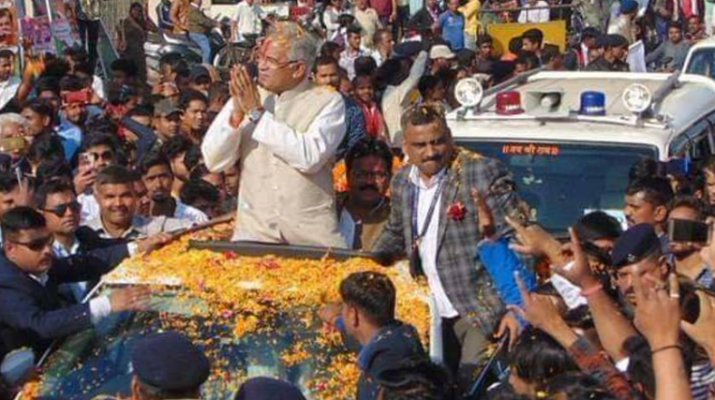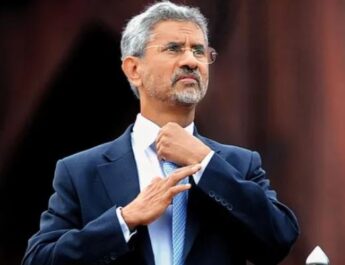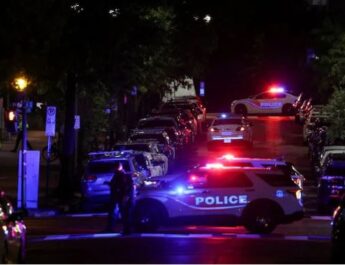The Chhattisgarh Legislative Assembly has unanimously passed two new bills to provide reservation to SC, ST, OBC and poor general category. It has been sent to the governor. Bills will become Acts after they sign them. As soon as it is published in the extraordinary gazette, the new system of reservation will be implemented in the state. Only after that the roster of reservation will be released for new recruitments and admission in schools and colleges in the state. Reservation has been abolished in Chhattisgarh by a decision of the High Court on 19th September.
During the discussion on the bill in the House, Chief Minister Bhupesh Baghel said that after the passage of the bill, today itself our senior ministers will go to the governor to sign it. We will present our case in the Supreme Court as well with quantifiable data. Appealing to the opposition, the Chief Minister said, “Leader of Opposition, former Leader of Opposition, Raman Singh, Brijmohan Ajay Chandrakar, BSP and Janata Congress MLAs jointly meet the Prime Minister. There should be no party talk in this.” Earlier, the opposition brought amendment proposals for these bills.
Leader of Opposition Narayan Chandel said, the report of the Quantifiable Data Commission was not even presented in the assembly. The House has no knowledge of that. The government is saying that the proportion of the population has been made the basis of reservation, so how could it be made the basis without data. Present the data first. Then make a law. Why was the government in such a hurry? Brijmohan Agarwal said that today is Art Day for the Constitution. Will they make a law against the constitution for small elections? Dharamlal Kaushik said what is the guarantee that tomorrow no Kunal Shukla will challenge this Bill in the court. After a long and heated discussion late in the evening the bill was passed unanimously.
These laws will give reservation
The Chhattisgarh Public Service (Reservation for Scheduled Castes, Scheduled Tribes and Other Backward Classes) Amendment Bill and Educational Institution (Reservation in Admission) Amendment Bill have been passed. In both these Bills, the reservation ratio has been fixed at 32% for tribal class-ST, 13% for Scheduled Caste-SC and 27% for Other Backward Classes-OBC. There is also a proposal to give 4% reservation to the poor of the general category. Including this, there will be 76% reservation in Chhattisgarh.
Reservation can be up to 88% in districts
For the first time in this bill, the state government has prescribed reservation on the posts of district cadre. Chief Minister Bhupesh Baghel said, reservation will be given to Scheduled Castes and Scheduled Tribes in class III and IV posts in the districts in proportion to their population in the concerned district. OBC will get 27% reservation. On the other hand, the poor of the general category will get 4 to 10% reservation in different districts. Till now the reservation of district cadre has been given through a government order. The High Court had dismissed this reservation in the districts of Surguja division in the order of September 19, calling it illegal. Now, due to the new system, the reservation limit in some districts will go up to 88%.
As of September 19, Chhattisgarh had 58% reservation in government jobs and education. Of these, 12% was reserved for Scheduled Castes, 32% for Scheduled Tribes and 14% for Other Backward Classes. Along with this, there was a provision of 10% reservation for the poor of the general category to some extent. The decision of the Bilaspur High Court, which came on 19 September, ended the reservation for Scheduled Castes, Scheduled Tribes and Other Backward Classes. After that the government decided to restore reservation by bringing a new bill.
New laws also come with legal hurdles
Constitutional affairs expert B.K. Manish says, there are many technical hurdles with the bill that the government has passed, which can implicate it in a legal battle. First of all, reservation has been fixed in the Acts only on the basis of population. This is in violation of the Mandal judgment of 1992 and the PMK (Tamil Nadu) v. Mayilrumperumal judgment of 2022 itself. The decision to give 27% reservation to OBCs is based on the 42-year-old recommendation of the Mandal Commission on Central Government Services. This is also a violation of the Maratha reservation decision that came in 2021.
The fact that the total reservation is much more than the limit of 50% is also a major complication. This time the scheduled area was introduced as a special situation, but there is no separate share of the scheduled areas in class one and two jobs. This is in violation of the Mandal judgment of 1992. The figures for inadequacy of representation have been compiled department-category-wise and not cadre-wise. This is also in violation of the Mandal judgment and the Jarnail Singh judgment of 2022.




